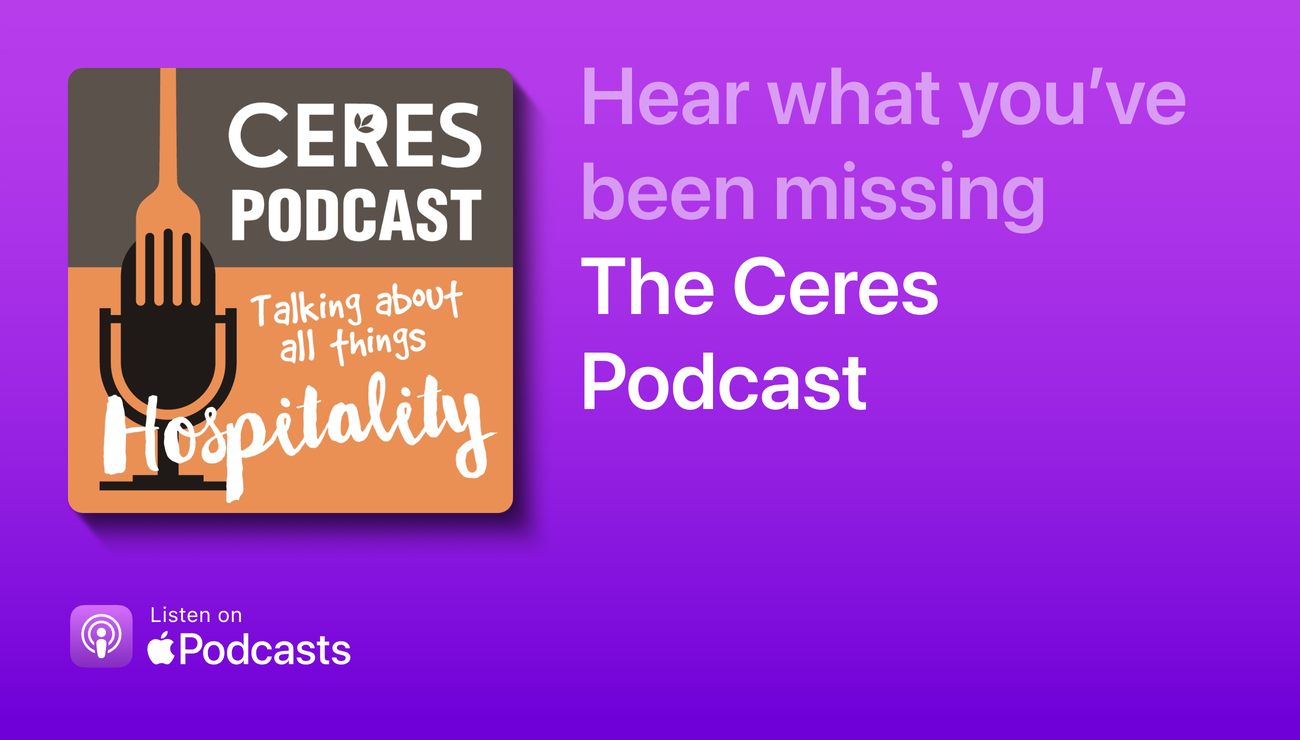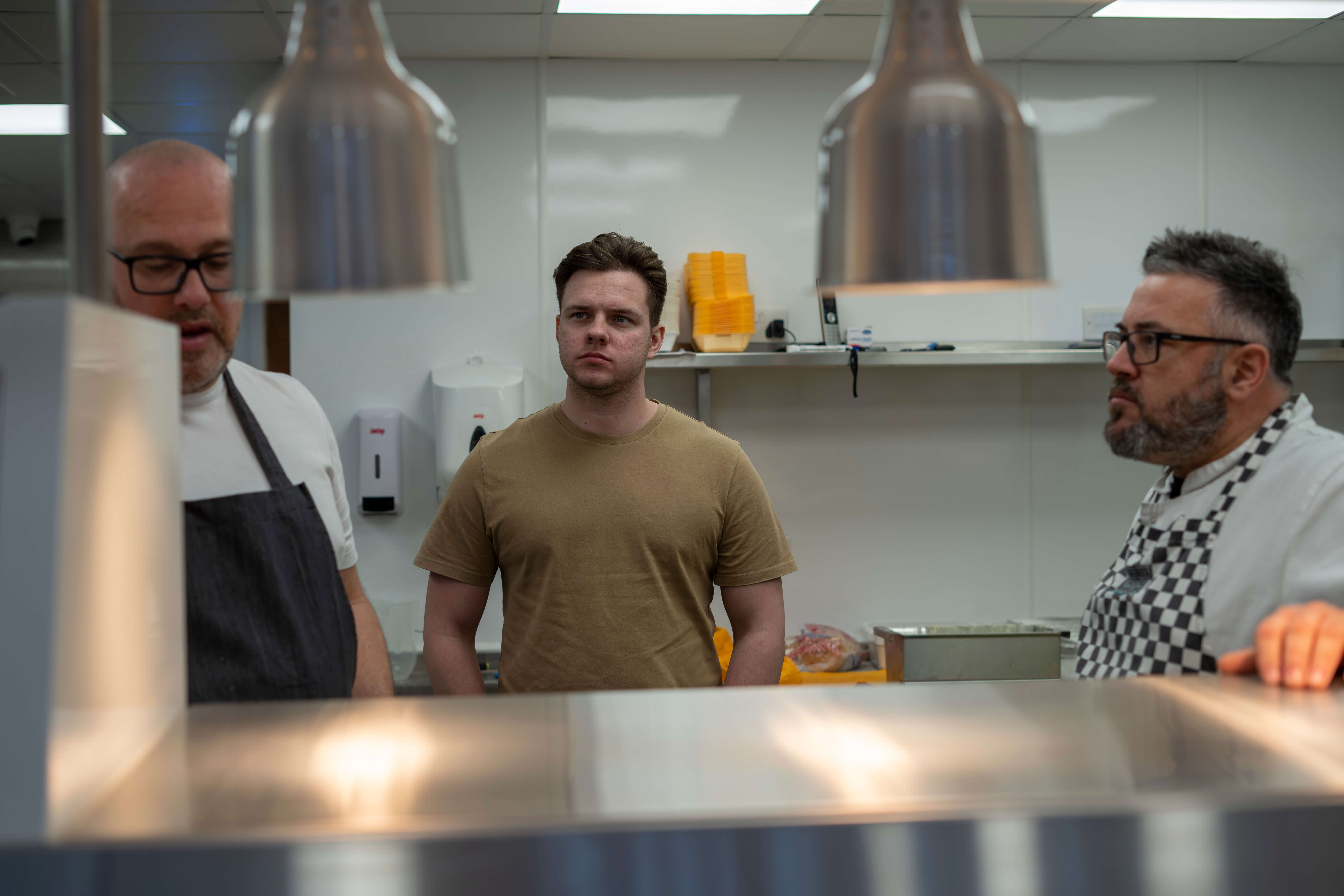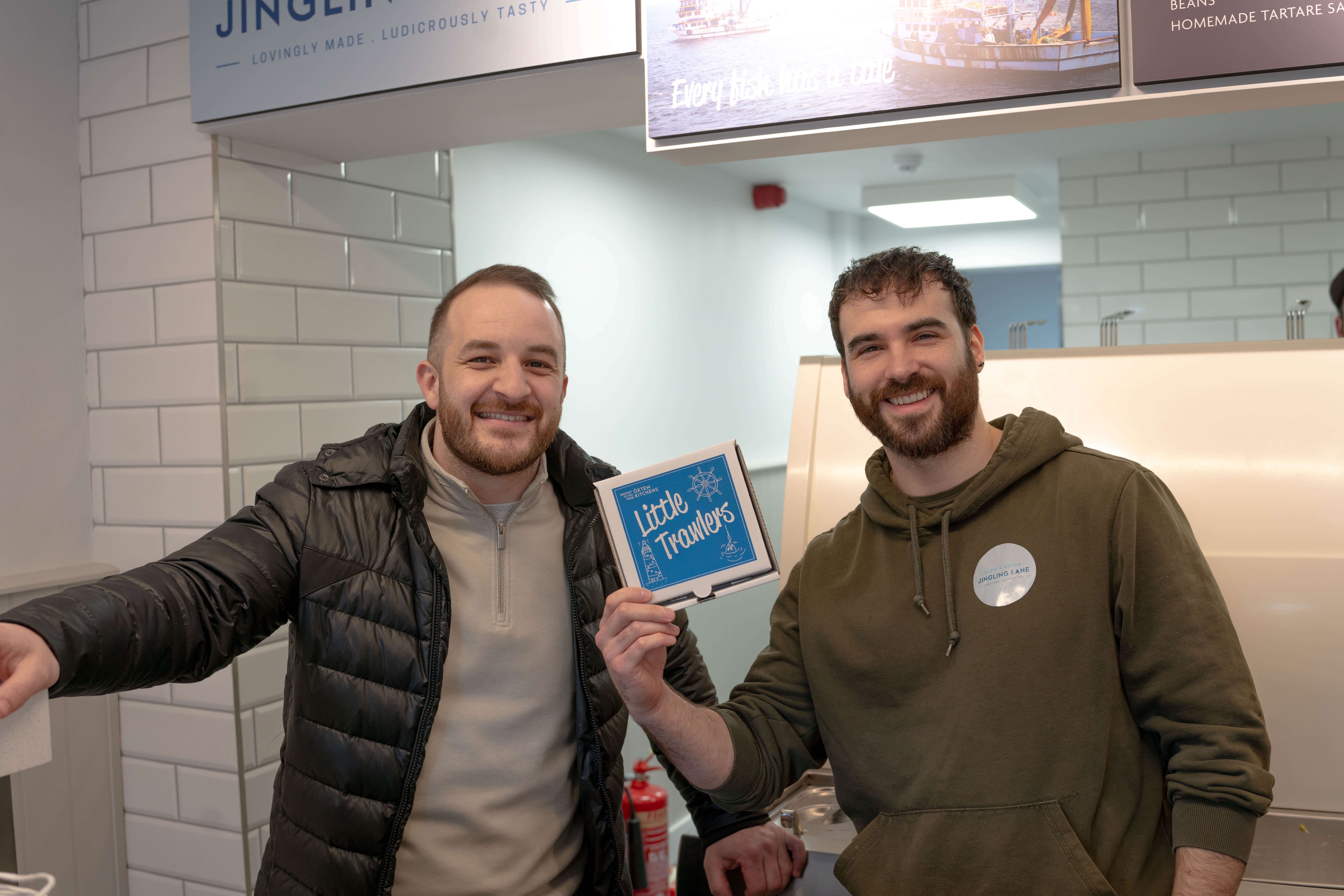Episode 195 of The Ceres Podcast: Behind the Fryer with Charlie Collins and Cem Oktem
Posted by Emma on 20th Jan 2025 Reading Time:
The fish and chip industry is a cornerstone of British culture, but it’s also a reflection of the broader economic landscape, filled with challenges and opportunities. In Episode 195 of The Ceres Podcast, host Stelios sits down with two seasoned industry experts: Charlie Collins, owner of Frydales with two outlets in Leicester, and Cem Oktem, whose four shops in the North West—Priory Plaice, Jingling Lane, Packet Bridge, and Westgate—showcase the diversity of his operations. Their candid discussion sheds light on the realities of running successful fish and chip shops in today’s turbulent economic climate.
The episode begins with an honest acknowledgement of the seasonal slowdowns that fish and chip shop owners often face, especially during January. Dubbed “Blue Monday” season, Cem and Charlie share how colder weather, slippery conditions, and cautious customer spending contribute to quieter months. Cem notes that deliveries remain a saving grace. At the same time, Charlie reflects on a chaotic reopening after a Christmas closure, only to face a significant drop in footfall as the temperature plummeted.
Their experiences highlight the adaptability required to navigate such slumps, with both guests offering insights into how delivery services and promotions can soften the blow.
If there’s one thing that keeps shop owners awake at night, it’s the rising cost of supplies. Fish prices, in particular, have been a hot topic in the industry. Charlie and Cem dive deep into this issue, discussing everything from fresh haddock becoming more affordable than frozen-at-sea varieties to the potential for dramatic price increases. The looming question: how high can prices go before customers start walking away?
Cem shares his strategy of maintaining healthy stock levels and absorbing small cost increases to delay raising menu prices. Conversely, Charlie talks about incremental price adjustments, ensuring customers aren’t hit with a sudden shock. Their approaches differ, but both emphasise balancing profitability with affordability.
One of the most compelling segments of the episode focuses on the challenges posed by rising labour costs. With minimum wage rates set to increase significantly, Cem and Charlie discuss the ripple effects on pricing, profitability, and staffing levels. Cem highlights the need to keep fish and chips affordable relative to hourly wages, ensuring the meal remains an accessible treat for most customers.
Charlie shares his experience of gradually raising prices to accommodate higher wages while maintaining transparency with his team about the financial realities of the business. Stelios adds thought-provoking insights on employer National Insurance Contributions and their downstream impact, reminding listeners that businesses often serve as intermediaries between taxes and consumers.
The conversation shifts to the topic of deliveries—a growing component of the fish and chip business. Cem advocates for employing in-house drivers to maintain control over the customer experience, from timing to quality assurance. By contrast, Charlie explains why he relies on aggregators like Uber Eats and Just Eat, citing the challenges of managing drivers as a small operation.
Both perspectives offer valuable takeaways, with Cem emphasising the benefits of consistency and Charlie highlighting the efficiency of outsourcing. Stelios injects humour into the discussion, sharing anecdotes about delivery mishaps and customer expectations, illustrating the complexities of this modern-day necessity.
In an era where digital presence can make or break a business, the trio explores the role of social media in attracting and retaining customers. Cem shares his recent decision to outsource social media management, recognising the time-intensive nature of crafting engaging content. Charlie, however, prefers a hands-on approach, focusing on Facebook posts that directly convert into sales through targeted offers and promotions.
Stelios raises the question of whether viral fame, like that of TikTok sensations, truly translates into sustainable success for small businesses. The group’s consensus? Authenticity and consistency trump fleeting trends. They also discuss the pitfalls of opening a business to public scrutiny online, sharing amusing and cautionary tales about customer comments and critiques.
No discussion about the fish and chip industry would be complete without addressing customer behaviour. Cem and Charlie share their experiences of managing complaints, from forgotten items to unrealistic expectations. Cem recounts a humorous but frustrating encounter with a customer unhappy about fish sizes, while Charlie reflects on how offering discounts can soften the sting of occasional service hiccups.
The group agrees that while human error is inevitable, remaining professional and empathetic is essential. However, they also caution against letting unreasonable demands dictate business decisions, emphasising the value of clear communication and standing firm when necessary.
The episode concludes with a broader look at the economic factors shaping the fish and chip industry. Topics include fiscal drag, the impact of COVID-era policies like furlough, and the long-term implications of rising taxes and wages. Cem and Charlie express optimism about the resilience of the takeaway model, noting that fish and chips remain a comforting and affordable luxury for many.
Stelios ties it all together with his characteristic blend of wit and insight, encouraging listeners to think critically about the intersection of business, economics, and culture.
Episode 195 offers something for everyone. And the best part? You can listen to it on your favourite podcast platform, from Apple Podcasts to Spotify.
So, grab a cuppa, settle in, and let The Ceres Podcast take you on a journey through the highs and lows of Britain’s beloved fish and chip industry. You won’t regret it.





